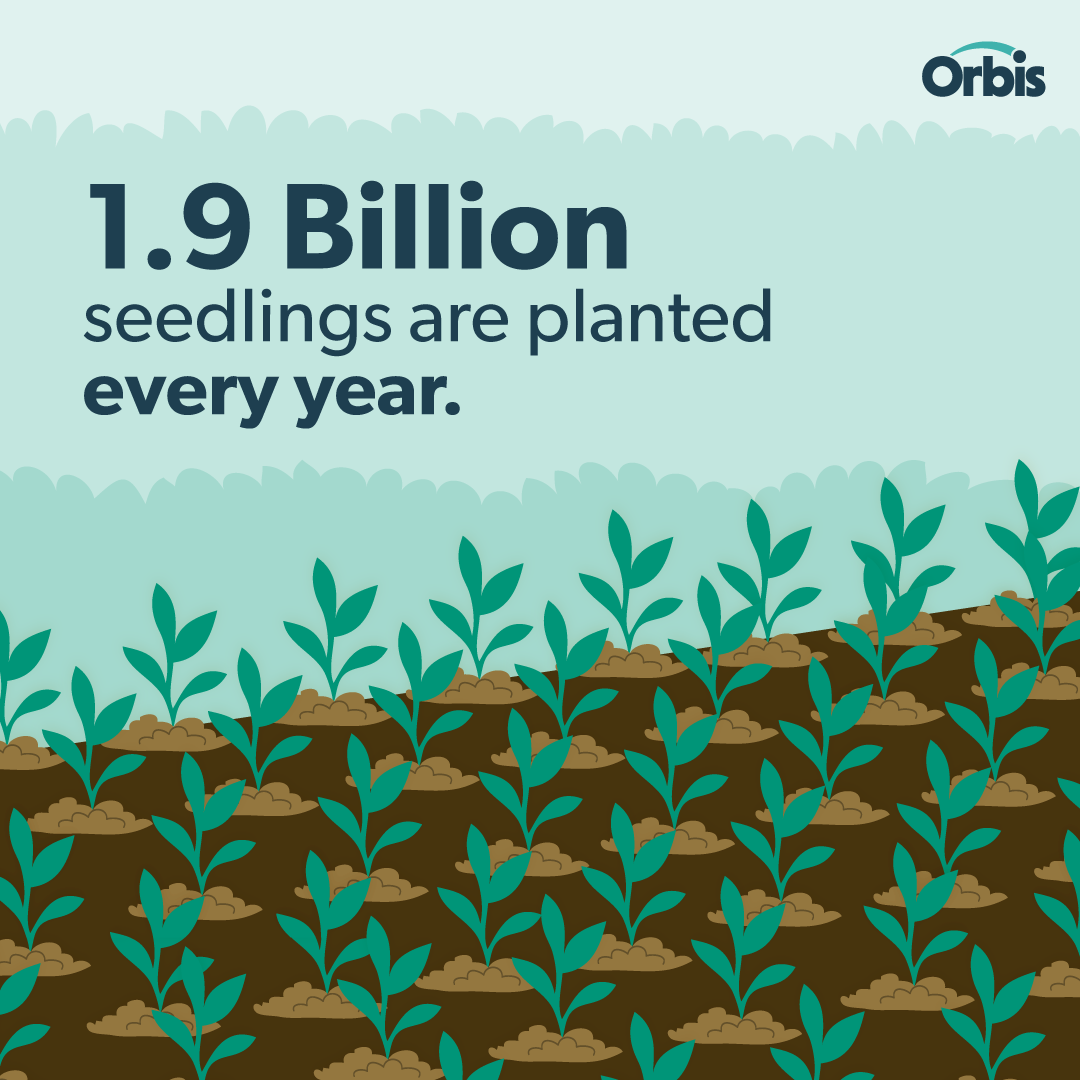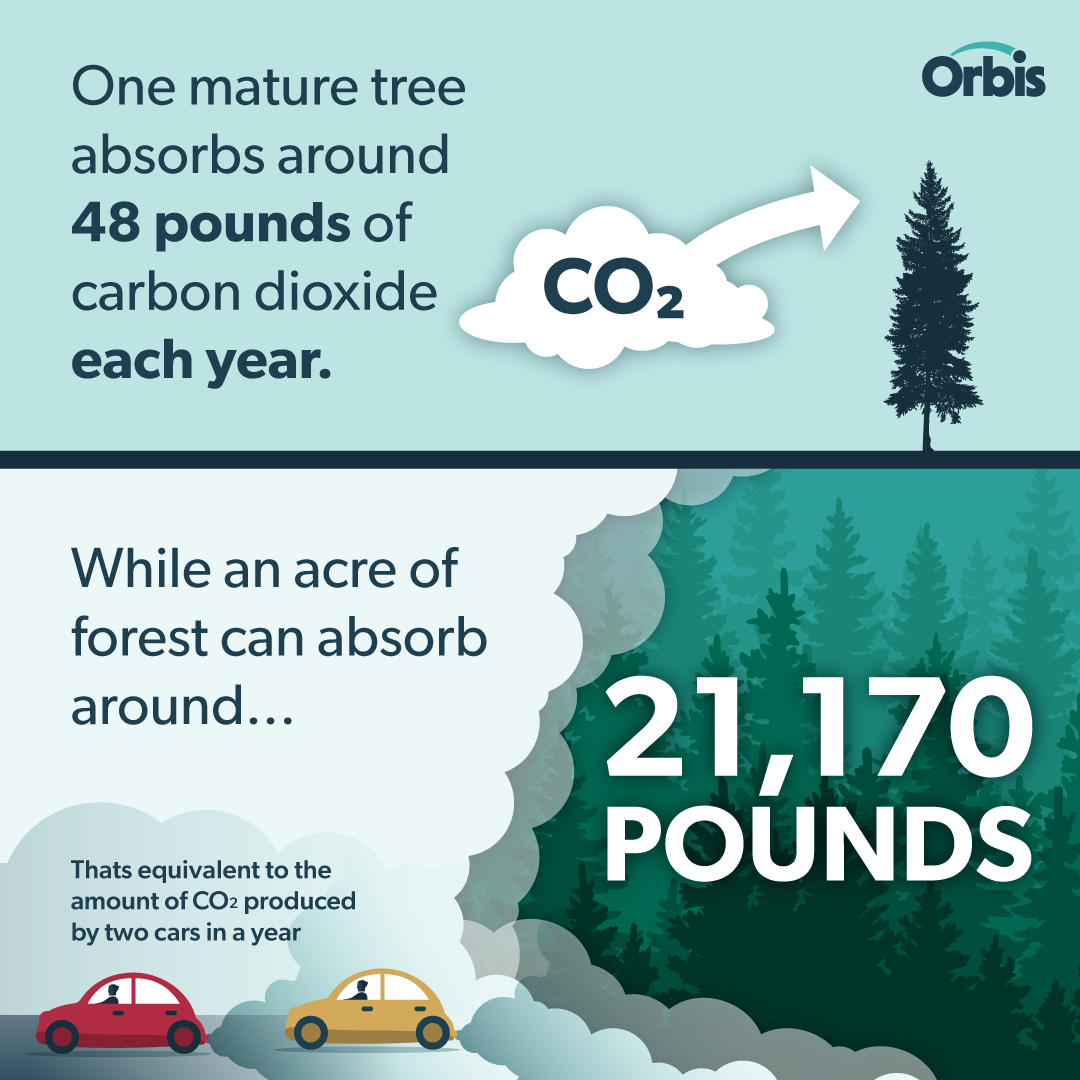
Forestry and the Environment
When people think of forestry, they often associate it with vast stretches of land covered in trees. However, at its core, it’s about making the world a better place. According to Merriam Webster, forestry is defined as “the science of developing, caring for, or cultivating forests” and “the management of growing timber.” It is a crucial element of sustainable development and an effective solution to environmental issues. Unfortunately, the world is currently grappling with increasing environmental challenges, including global warming, acid rain, air pollution, urban sprawl, waste disposal, and ozone layer depletion. Neglecting to take proactive measures to protect our environment can have significant consequences on the health and well-being of all living beings on earth. As such, forestry and its environmental benefits have become more critical than ever, with profound impacts on both the present and future environment. This blog explores just a few of the advantages of forestry, including restoring lost forests, improving water and soil quality, mitigating air pollution, and promoting the preservation of privately-owned land.
Forestry Brings Back Forests
Over the years, forests have been logged extensively, with many areas being cleared of trees for timber, agriculture, or development. Unfortunately, in many cases, these forests were then abandoned, leaving behind degraded land, soil erosion, and loss of biodiversity. Thanks to forestry, many forests have been brought back to life through the process of reforestation. One of the most common methods of reforestation is planting seedlings, which involves growing trees from seeds in nurseries and then transplanting them into areas where forests have been lost or degraded. Today, an average of 1.9 billion seedlings are planted annually. Over time, the trees grow and bring back the forests that were once thought to be lost forever. Planting seedlings to regenerate forests ensures that the numerous benefits of forests are available to both current and future generations.

Forestry Improves Water and Soil Quality
A key benefit of forests is their ability to cycle nutrients between soil and vegetation, which is essential for improving soil fertility and maintaining water quality. Forests also help to prevent soil erosion by providing ground cover and stabilizing soil with their roots. This is especially important on steep slopes and in areas with heavy rainfall, where erosion can cause significant damage. By filtering pollutants, reducing erosion, and preventing soil runoff, forests work to render our water safe for human consumption. Forests essentially serve as a natural filtration system critical for maintaining water and soil quality and ensuring sustainable access to essential resources.
Forestry Offsets Air Pollution
With air pollution emissions on the rise, forestry plays a critical role in reducing the offset of air pollution by absorbing and sequestering carbon dioxide (CO2) from the atmosphere through the process of photosynthesis. Trees and other vegetation absorb CO2 from the air and store it as carbon in their leaves, branches, trunks, and roots. Similar to how forests act as a natural filtration system to water and soil, it also works as a filter in mitigating air pollution. Forests can absorb and filter harmful pollutants from the air that are known to contribute to respiratory and cardiovascular problems in humans, and can also harm wildlife and ecosystems. By planting and maintaining forests, we can help improve air quality and reduce harmful pollutants in our atmosphere.

Forestry Keeps Privately-Owned Land Intact
As demand for timber increases, more timberland investors are turning to logging. With an increase in loggers, responsible logging practices are more important than ever, which is why asset managers prioritize Environmental Social Governance (ESG). Coined in 2005, timberland investors use this term to evaluate the sustain-ability, ethical impact, and risk-to-opportunity ratio of their investments. Foresters use ESG to assist private landowners in comprehending the impact of their activities on their communities, as well as the advantages of managing their forests in an environmentally friendly manner. Improved management of private forests results in their longevity and productivity, offering ecological and economic benefits to the owners.
Conclusion
In conclusion, forestry is a vital tool for promoting environmental sustainability and ensuring the well-being of our planet. Through its ability to restore lost forests, improve water and soil quality, offset air pollution, and encourage private land conservation, forestry plays a critical role in preserving the natural environment. The numerous benefits of forestry have far-reaching implications, affecting the health and well-being of ecosystems, wildlife, and humans alike. Responsible forestry practices must continue to be prioritized to ensure that we reap the many benefits that forestry provides while safeguarding the environment for future generations.

Let’s Work Together
Orbis helps you make better sense of your assets, and better use of everything involved in managing them. Request more information or book a consultation with us today.
